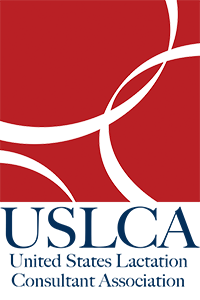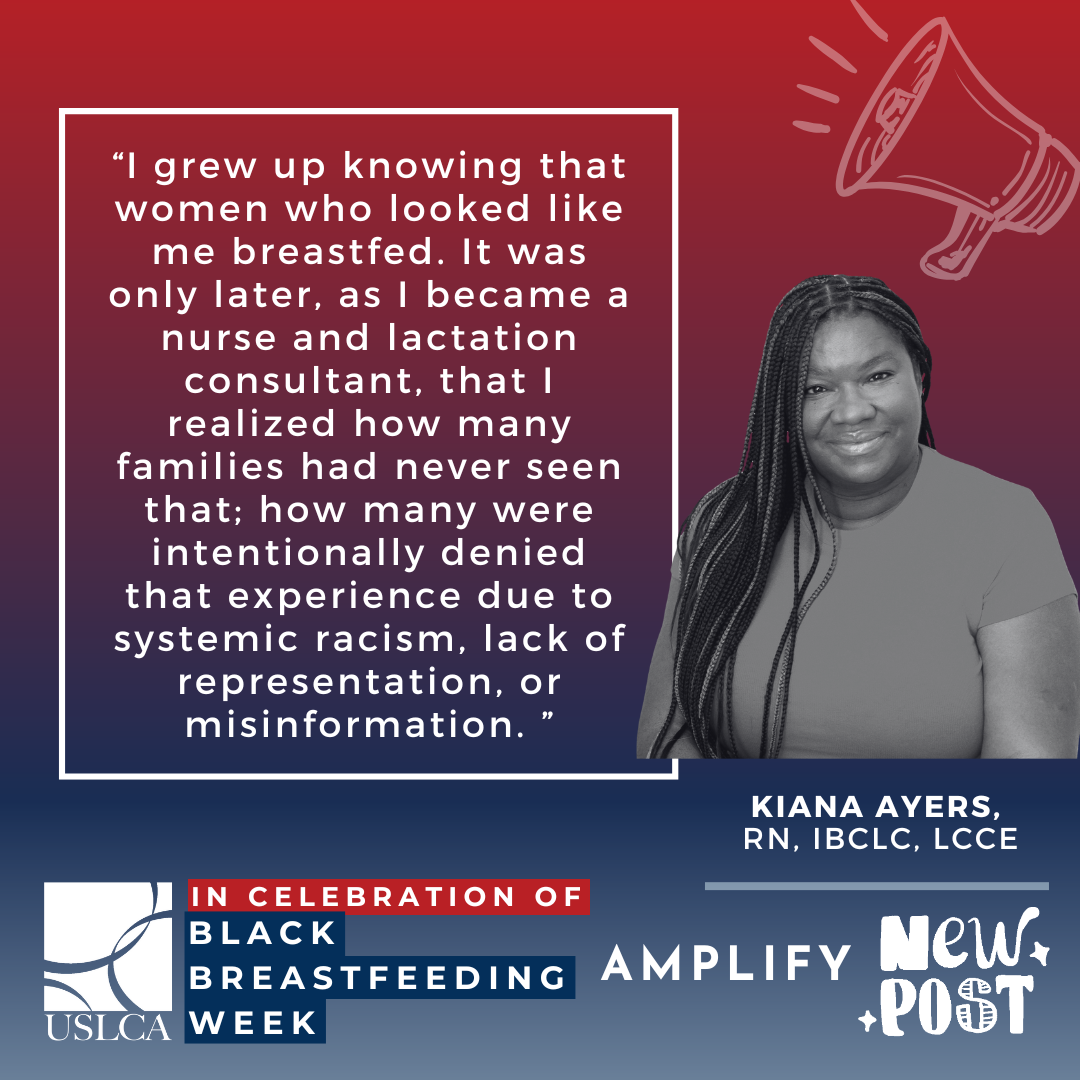Learning from Diversity: Rachel Romero’s Path to Inclusive Lactation Care
September 5th, 2024
By: Rachel Romero, IBCLC
WIC Breastfeeding Coordinator
Johns Hopkins Bloomberg School of Public Health
IBCLC Representative Chair with Maryland Breastfeeding Coalition
 Shirley [S]: Thank you, Rachel, for meeting with me. Before we dive into our main questions, could you please give us a brief overview of your background and how you came to work in lactation support?
Shirley [S]: Thank you, Rachel, for meeting with me. Before we dive into our main questions, could you please give us a brief overview of your background and how you came to work in lactation support?
Rachel [R]: Certainly. I’m a mother of three, and my journey into lactation support began with the birth of my first son when I was very young. At about three months postpartum, I started exploring the path to becoming an International Board Certified Lactation Consultant (IBCLC).
As a WIC program participant myself, I experienced firsthand the breastfeeding support they provided. I had a breastfeeding peer counselor who regularly checked in on me, and this inspired me to want to offer similar support to other mothers.
My professional journey in lactation support began in 2013 when I started working for WIC in Florida. I eventually became their Breastfeeding Program Coordinator. In 2017, after completing my clinical hours, much of which I accumulated through my work at WIC, and passing the exam, I achieved my IBCLC certification.
In 2023, seeking a change, my family and I moved to Maryland. I took on another Breastfeeding Program Coordinator position, this time with Johns Hopkins. We’re really enjoying our new home and the opportunities it’s brought.
Throughout my career, I’ve been driven by a desire to provide the kind of support I received as a young mother, particularly to underserved populations. My personal experience as a young mom and WIC participant has deeply informed my approach to lactation support and advocacy.
Becoming an IBCLC: A Personal Journey
Shirley [S]: Awesome. That’s great. Congratulations on becoming an IBCLC! It’s a challenging process, isn’t it? While I’m not an IBCLC myself, I’m familiar with the requirements, and I know it’s not an easy journey. So, truly, congratulations on your achievement.
Rachel [R]: It really was exciting, especially because it had been my goal for so long. There were times when I thought it might never happen. I’d catch myself thinking, ‘Oh my God, I’m never going to get there.’ But I persevered, and when I finally achieved it, it was incredibly rewarding. So yes, thank you for the congratulations.
Personal Background and Unique Perspectives
[S]: Thank you for sharing your journey and accomplishments, Rachel. It’s inspiring to hear about your dedication to this field. Now, let’s delve into some more specific aspects of your work. We’re going to start with our first main question: How has your personal background influenced your approach to lactation care, and what unique perspectives do you bring to the field?
[R]: Many of us in lactation start our journey in a similar way. Often, we have our children, experience challenges with lactation, and become passionate about it, especially after having to advocate for ourselves and our babies. That’s how I entered this field.
I was a young mom, just 18 when I was pregnant with my oldest. Everything was very new. I believe this gives me a unique perspective because I can relate well to young parents and teen parents. I particularly enjoy working with teen parents.
Despite being Hispanic, Latina, Puerto Rican – my family is from Puerto Rico – I was born here, as was my mom. My grandmother came here when she was very young. There’s often an assumption that in Hispanic families, lactation is universally supported. However, I’ve observed that a subset of Hispanic families, especially those who’ve been in the U.S. for several generations, may not be as supportive. In many Latino families, grandparents often serve as primary caregivers while parents work. This can sometimes lead to generational differences in infant feeding practices. In my experience, I observed that older generations might prefer formula feeding, sometimes even refusing to use breast milk when caring for infants. This cultural dynamic can create challenges for young parents who choose to breastfeed.
As a young mom, I faced criticism and negativity about my decision to breastfeed. This experience profoundly shaped my perspective on lactation support. As a result, I’m particularly passionate about helping families advocate for themselves. I focus on strategies to navigate not just unsupportive healthcare providers, but also family members who may not understand or support lactation. I emphasize building confidence and self-esteem in parents, helping them trust their decisions and not let external pressures undermine their choices.
This aspect of support – helping families build resilience and confidence in the face of challenges – is a key perspective I bring to my work. I find great satisfaction in empowering families to stand firm in their choices and not let unsupportive individuals, whether family members or healthcare providers, discourage them.
[S]: Wow, Rachel, your background is really something special. You know, you’re actually the first person I’ve interviewed who was a young mom and now works with young parents. That’s huge.
What really strikes me is how you’ve taken your own tough experiences and turned them into a superpower in your work. You get the whole picture – the family stuff, the cultural bits, all of it. It’s not just about breastfeeding for you, is it? You’re helping families navigate some pretty tricky waters.
I’ve got to say, having someone like you in this field – someone who’s been there and really gets it – that’s incredibly valuable. You’re bringing something to the table that not many others can. It’s really impressive.
Rachel’s unique perspective comes from deeply personal experiences. She shared more about how her family background has shaped her approach to lactation support, which offers valuable insights into the cultural complexities many families face.
[Editor’s Note: The following section contains personal reflections that have been paraphrased to protect privacy while maintaining the essence of the experience shared.]
Rachel’s decision to breastfeed despite family traditions led to significant personal challenges. Her choice created tension within her family, particularly with her grandmother, who held a matriarchal role and strongly favored formula feeding. This experience highlighted the complex dynamics that can arise when personal choices conflict with deeply ingrained family expectations.
The cultural implications of her decision were profound. In her family structure, going against the matriarch’s wishes caused friction, leading to strained relationships. This friction extended beyond breastfeeding to other parenting choices, such as limiting screen time and maintaining consistent bedtimes. While the matriarch’s frustration was evident, it was ultimately Rachel’s decision to create distance in the relationship. This situation underscored the weight of cultural expectations in family dynamics.
Rachel also noted the cultural differences in how such conflicts are perceived. Her husband’s family, coming from a different background, didn’t fully grasp the magnitude of going against the family matriarch’s wishes. This contrast emphasized the importance of understanding diverse cultural perspectives in lactation support.
These personal challenges have deepened Rachel’s empathy for families navigating similar situations. They’ve reinforced her commitment to supporting parents in making informed choices about infant feeding, even when faced with strong familial or cultural pressures.
Rachel emphasizes the cultural significance of these challenges and how she uses her experience to empower others. ‘It is indeed a cultural thing,’ she notes. ‘I strive to empower families, assuring them that they can navigate these situations, potentially more effectively than I did.’
She advocates for finding respectful ways to engage family members in the lactation journey. Rachel highlights the importance of inclusive communication strategies: ‘You can find ways to appropriately talk to your family members and bring them into the journey. It’s about informing them of ways they can contribute and support.’
Drawing from her professional experience, Rachel mentions resources that can be valuable in these situations. ‘At WIC in Florida, we had pamphlets specifically designed for Hispanic grandmothers. These materials aimed to educate and suggest supportive actions for family members who might be unfamiliar with current lactation practices.’
While reflecting that she didn’t have access to such resources during her personal journey, Rachel underscores their potential value. She acknowledges the complexity of these situations, stating, ‘I aim to assist families in these challenging circumstances because I understand firsthand how difficult they can be.’
This approach allows Rachel to leverage her personal experiences to provide empathetic, culturally sensitive support to the families she works with, particularly in navigating complex family dynamics surrounding lactation choices.
Advocating for Improved Lactation Support
[S]: I understand. I’m glad that your challenging experience has enriched your approach to helping families navigate similar situations. It truly gives you a unique perspective in supporting them. Thank you for sharing that with us. It’s a valuable insight into your work.
Now, let’s move on to our second question: How do you advocate for improved lactation support within your community, particularly for underserved populations?
[R]: My approach to advocating for improved lactation support, particularly for underserved populations, is multifaceted and community-focused. During my time with WIC, while I provided one-on-one support to families, I realized the importance of engaging the broader community to create a more supportive environment for lactation.
One significant project involved outreach to healthcare providers and daycares. Our agency hired lactation counselors specifically to connect with doctors’ offices frequently visited by our WIC clients. We introduced our services, offered free training, and established referral systems. Even when offices didn’t accept training, we built relationships that increased referrals to our services. This approach took time—about a year—to show impact, but it significantly improved support for breastfeeding mothers.
We expanded our outreach to various community touchpoints:
- Employers where many of our clients worked
- Pharmacists
- Pediatric dentists
- Faith-based organizations
In churches, for instance, we educated on how to support breastfeeding mothers in their congregations.
In Maryland WIC, we developed pre-written support letters for mothers returning to work. These letters, coming from Maryland WIC rather than individual mothers, outline legal requirements and best practices for supporting breastfeeding employees. We have similar letters for childcare providers, which include QR codes for training resources.
As a member of the Maryland Breastfeeding Coalition, I’m involved in broader advocacy efforts. We offer scholarships for people of color aspiring to become lactation consultants and are planning our first conference to provide affordable continuing education units (CEUs).
Our strategy focuses on integrating lactation support into the everyday environments our families navigate. By educating and partnering with community entities, we ensure that even when direct healthcare providers lack lactation expertise, they can guide families to appropriate resources and support.
This comprehensive approach aims to create a network of informed, supportive community members and professionals, enhancing the overall landscape of lactation support for underserved populations.
Staying Current with Research and Best Practices
[S]: That’s a brilliant strategy. You’re not just handing out information; you’re providing practical tools. Giving them easy access to training through QR codes is truly impressive. It’s a smart way to empower providers and extend your advocacy reach.
[R]: Exactly. We can’t do this work alone. It’s challenging to be the only person or agency in a client’s support network, especially when facing pushback. When we’re not all on the same page, it makes our job much more difficult. Our approach wasn’t perfect, but it definitely made a positive impact. By involving the broader community, we’re creating a more cohesive support system for families.
[S]: That’s a great point about the importance of community involvement. Now, let’s move on to our next question. How do you stay current with the latest research and best practices in lactation care? And how do you incorporate this knowledge into your work?
[R]: I feel fortunate to work with Maryland WIC, as they provide us with quarterly nutrition and breastfeeding updates. Every three months, we have a full-day meeting where we learn about the latest evidence and best practices in nutrition and lactation. Recently, we had Nancy Mohrbacher speak to us about supporting exclusively pumping families, which was incredibly informative.
I’ve also been a member of USLCA (United States Lactation Consultant Association), which has provided valuable educational opportunities. I’m always on the lookout for free CEUs (Continuing Education Units) and educational resources, not just for myself but also for my peer counselors.
We focus on learning that’s directly applicable to our population. For instance, the information on exclusive pumping is particularly relevant as we tend to see more exclusive pumpers in WIC due to various support barriers.
I make it a priority to incorporate these best practices into our work, especially when they align with our clientele’s needs. While not all new information is directly applicable to our specific population, I strive to implement what’s most relevant and beneficial for the families we serve.
By staying current with research and best practices, we can continually improve the support we offer to our clients, addressing their unique needs and challenges more effectively.
Vision for Nationwide Improvement
[S]: Thank you for sharing your approach to staying current in the field. Now, for our final question: If you could instantly implement one change to improve lactation support nationwide, what would it be and why?
[R]: I believe improving access to lactation support is crucial. It would be wonderful if the government could establish free breastfeeding centers open to everyone, not just WIC participants. This would help those who don’t qualify for WIC but can’t afford private practice support.
However, my primary focus would be on increasing access to the IBCLC credential. While we shouldn’t make the process easier, as its rigor serves a purpose, we could make it more affordable, accessible, and streamlined. This would particularly benefit individuals from underserved communities, who often face more barriers in obtaining this credential. Increasing representation in the field is vitally important.
As a Breastfeeding Coordinator, I’ve seen the impact of hiring breastfeeding peer counselors from our community. [The] women are passionate about breastfeeding and understand both the community and the WIC program. It’s rewarding to watch them grow professionally, often in their first professional role, and many aspire to become lactation consultants. This approach builds up women from our community while increasing representation in the field. However, it would be ideal if there were more pathways to becom[ing] an IBCLC beyond working for WIC.
From my personal experience as a young mother, I found it challenging to connect with some existing support organizations. As a teenage mom and a Latina, I felt like a double minority. Some groups seemed to be primarily run by older women from different socioeconomic backgrounds, and I struggled to relate to their experiences. This made me hesitant to seek support from these organizations, as I feared feeling out of place or misunderstood.
Increasing diversity in lactation support would help address these barriers. It would ensure that young mothers and those from diverse backgrounds can find support from professionals who understand their unique challenges and experiences.
Conclusion
[S]: Rachel, I want to thank you sincerely for taking the time to share your experiences with us. Your insights have provided a valuable glimpse into the challenges and rewards of lactation support, especially from your unique perspective as a Latina who began this journey as a young mother. Your dedication to improving access and representation in the field is truly inspiring.
[R]: Thank you so much for having me. I’m truly honored to be one of the voices you’re amplifying during National Breastfeeding Month. Being part of the celebration for the second year of Semana de la Lactancia Latina is especially meaningful. We must continue to highlight diverse experiences and perspectives in lactation support, and I’m grateful for the opportunity to contribute to this conversation.
[S]: Your contribution is invaluable, Rachel. By sharing your story and insights, you’re helping to pave the way for more inclusive and effective lactation support. Thank you again for your time and ongoing work in this field.
The content of this post does not imply endorsement and may not reflect the position of USLCA.



